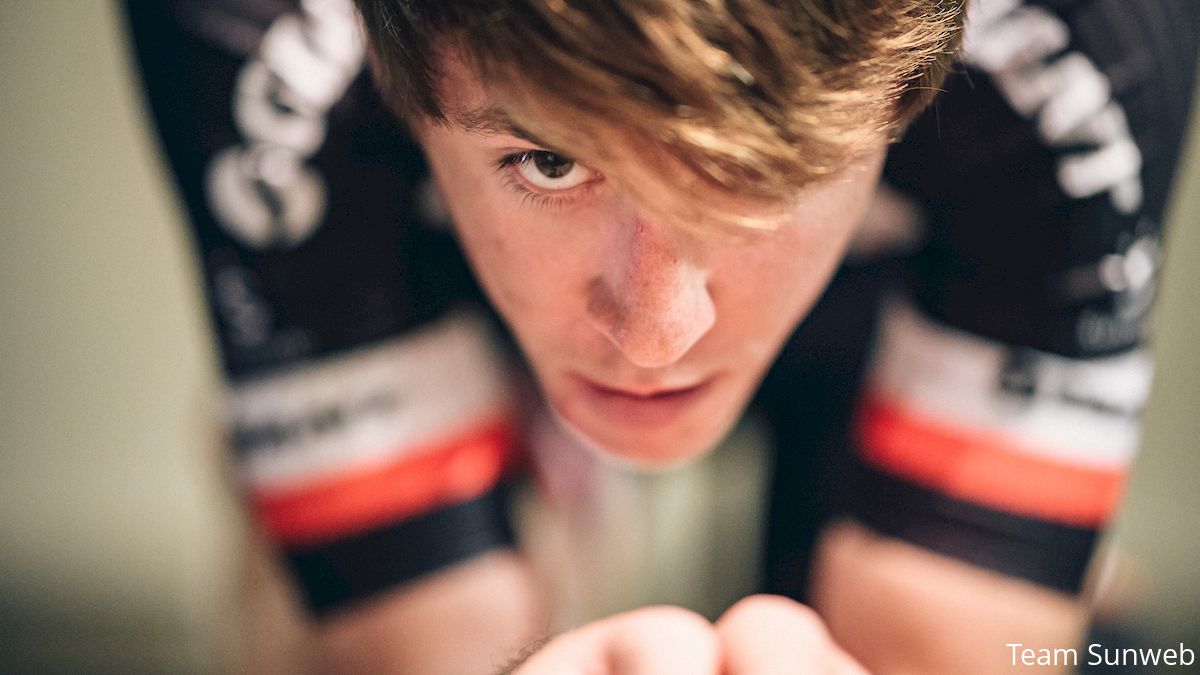Chad Haga: Tales Of The Tour Of Basque Country Boogeyman
Chad Haga: Tales Of The Tour Of Basque Country Boogeyman
Pais Vasco (or, Tour of the Basque Country) is a race that Chad Haga had somehow managed to avoid for the whole of his career.

When I heard the Vuelta Ciclista al Pais Vasco was part of my spring race schedule, my eyebrows fled to the safety of my forehead and took shelter behind my shaggy bangs. I imagined what lay in store for me with an expression of mild terror.
Pais Vasco (or, Tour of the Basque Country) is a race that I’ve somehow managed to avoid—although I wasn’t actively doing so—for the whole of my career thus far. Now, it seemed my number had finally been called.
[Pais Vasco will stream live in the U.S. and Latin America on FloBikes, April 2-7, with daily replays. Sign up for PRO now.]
Within the peloton, each race has a reputation, fortified over the years as each edition accumulates stories. These tales are told and retold until, eventually, the race becomes a boogeyman in the mind of those who have yet to tackle the beast.
The stories surrounding Pais Vasco all share the theme of suffering. With sawtooth stage profiles, the race attracts a peloton full of climbers and subjects them to grueling, explosive stages that elevate any result achieved there above those from many equivalent races.
However, my own preconceptions of the race are not entirely founded on stories heard around the dinner table. Having raced a few editions of the Classica San Sebastian (the Basque one-day classic), as well as a few Vuelta a Espana stages in the region, I’m familiar with the brutally steep and irregular climbs for which the race is known.
Though I’m slender for my height and won’t be the biggest guy at the race, I will be on the right side of the peloton’s bell curve next week. I’m much better suited for the steady-state climbs of big mountains than the explosive stairmaster efforts that define the race.
And then, there’s the weather. It’s springtime, which in the Basque region means one thing: rain. Stages of the Vuelta al Pais Vasco that don’t get at least a little wet are the exception. The race is so well-known for rain that some of my teammates still debate whether the “year without rain” counts as a legitimate edition.
I can at least take solace in the knowledge that our team’s clothing sponsor, Etxeondo, handles such poor weather excellently (as well they ought to, being a Basque company).
On a personal level, none of this season has gone quite to plan, so I’m hopeful that will be corrected next week. The Tour Down Under was a bust. The thermal shock of traveling from the frozen tundra of my home in Fort Collins, Colorado, to the blazing heat of the Australian summer caused my throat to became so severely scorched that I couldn’t breathe.
Then, two late call-ups to stage races on the heels of rest weeks interrupted a planned big block of training meant to prepare me for the meat of the season. One such call-up was the disastrous Tirreno-Adriatico, where we finished with just three riders after illnesses and crashes whittled the team down. I managed to survive unscathed, only to lose valuable training days later with an unexplained fever. After enduring everything, I now have a solid week of training in my legs and have to hope it’s enough for this exceptional race!
After all that grumbling, you may not believe me when I say that I’m really looking forward to Pais Vasco. Those brutal stages, full of suffering? Well, this sport glamorizes suffering, and I’ve got a bit of a masochistic streak as well.
Come to think of it, I can never turn down a chance to test my limits. It may not be fun in the moment, but as cyclists we take pride in anything achieved at brutal races, wearing them like badges of honor. The week ahead offers chances for breakaways or perhaps a fast finish with Michael Matthews. Then there’s the time trial, my specialty, beckoning after a couple days in the mountains to soften our competitors legs.
Most of all, though, I’m excited about the race because the Basque culture and the spectators are second to none. They are Spanish, but just barely, boasting a culture and language that are unique in every sense of the word. Cycling in Pais Vasco is huge, and the energy and enthusiasm of the spectators is staggering. Regardless of the weather, they are out there to cheer, and they cheer just as hard for the grupetto as for the leaders. They come to see us suffer and grimace as we will our pedals to turn over time after time, shouting and clapping so loudly that you begin to wonder whether sound can push you uphill.
The Vuelta al Pais Vasco offers the perfect opportunity to test my mettle against the best of the sport—and to feel like a gladiator while I do it.
Why wouldn’t I want to go?